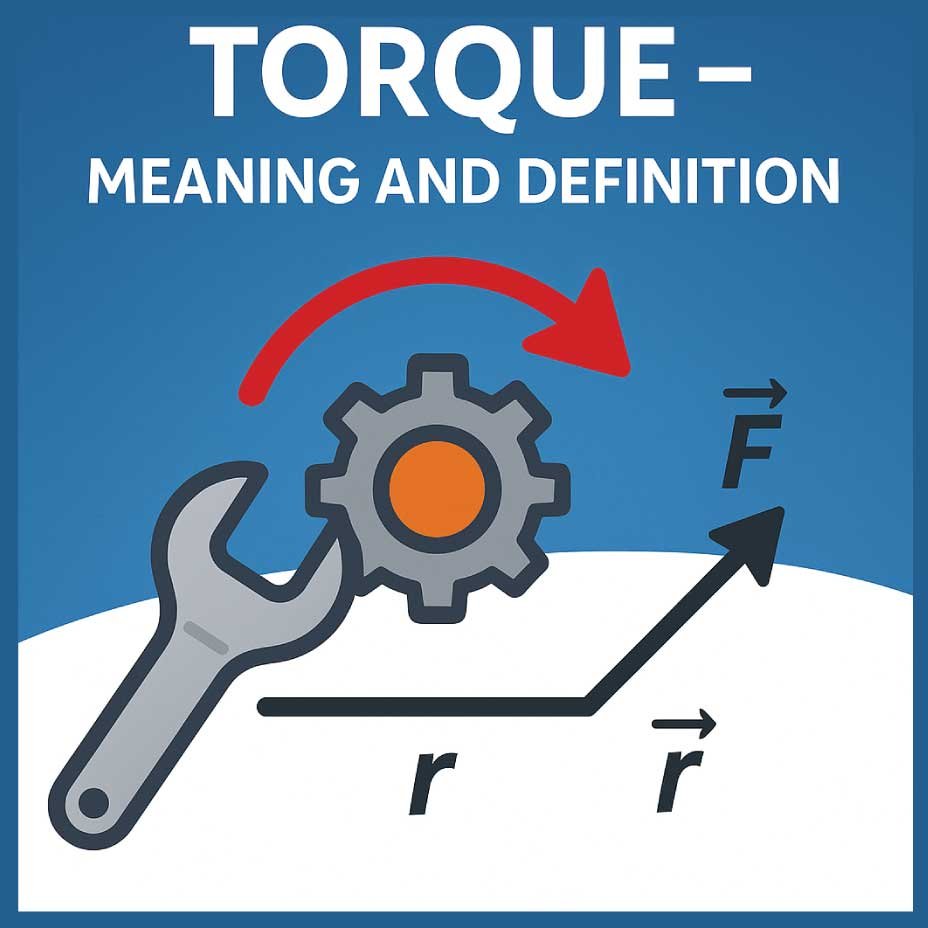Torque is a fundamental concept in physics and mechanical engineering that describes the rotational force acting on an object. It represents the ability of a force to cause an object to rotate around an axis or pivot point. Unlike linear force, which moves an object in a straight line, torque results in angular motion.
In simple terms, torque tells us how much a force acting on an object causes it to turn. The greater the torque, the more rotational effect the force has.
Torque Definition:
Torque is the rotational force that causes an object to rotate around an axis or pivot point. It is the measure of how much a force acting on an object causes it to turn. The greater the torque, the stronger the turning effect. It is commonly measured in Newton-meters (Nm).
Formula and Unit
Torque is mathematically expressed as:
Torque (τ) = Force (F) × Lever Arm Distance (r)
Where:
τ is the torque,
F is the applied force,
r is the perpendicular distance from the axis of rotation to the point where the force is applied.
The SI unit of torque is the Newton-meter (Nm). In some regions, especially in automotive contexts, pound-feet (lb-ft) is also commonly used.
Importance
Torque plays a critical role in machines, vehicles, engines, and tools. For example, in cars, higher torque means better acceleration and pulling power. In mechanical systems, it’s essential for designing rotating parts like shafts, gears, and motors.
Also Read:

